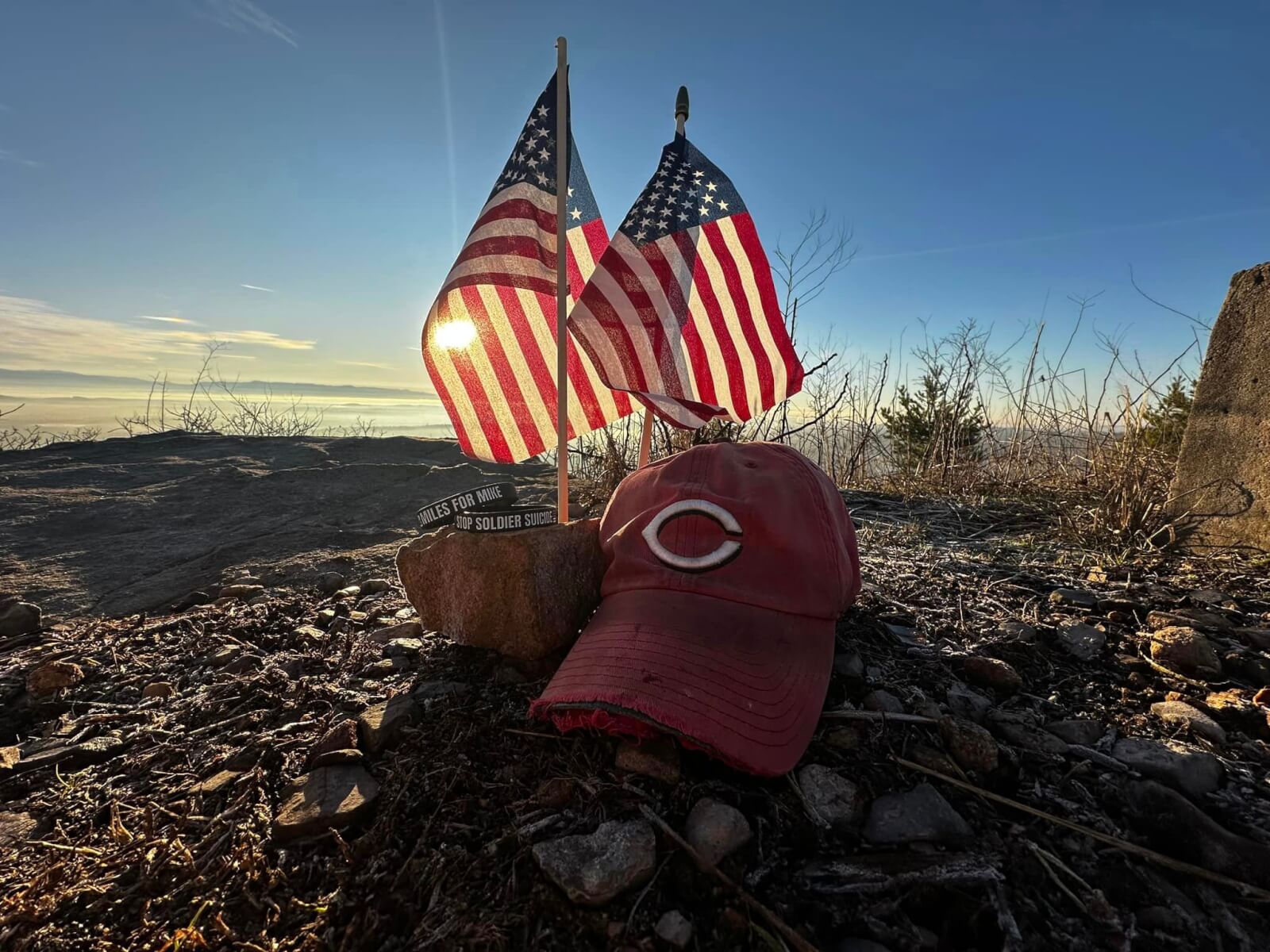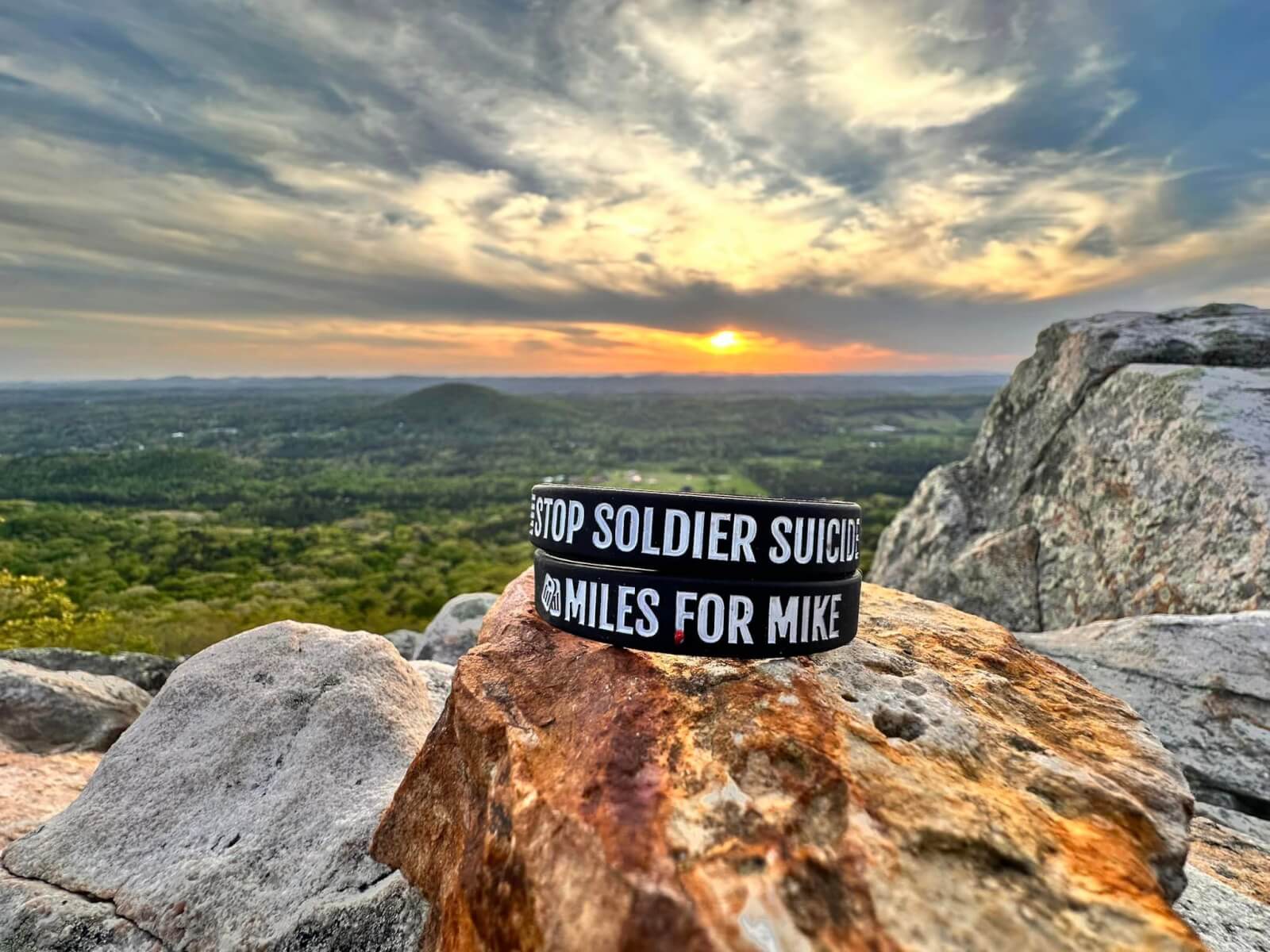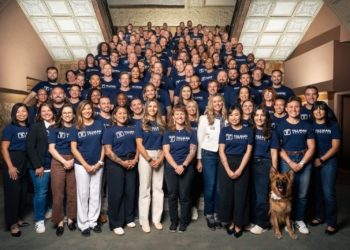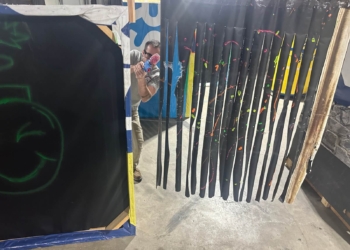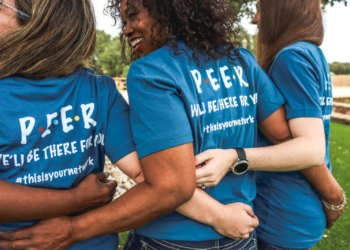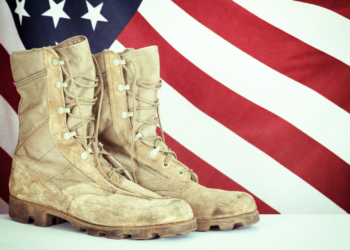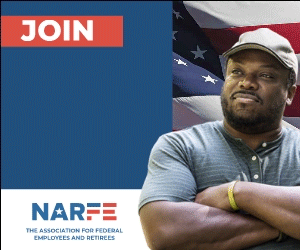Chris Stephens has launched a global effort to inspire others to log meaningful miles that honor his brother and raise awareness about veteran suicide.
It’s been eight years since Chris’ younger brother, Mike Stephens, died by suicide.
“Missing Mike extra today. We’re going to get this done, one mile at a time,” Chris shared in a recent Instagram post documenting his latest mission: training for the Marine Corps Marathon. But his 26.2 mile race isn’t about personal bests, it’s about honoring Mike, a Navy veteran who died in 2017. Chris is also raising awareness for the organization that helped him begin to heal: Stop Soldier Suicide (SSS), a national nonprofit focused solely on solving the issue of suicide among U.S. veterans and service members.
The miles Chris runs are part of #MilesForMike, a hashtag being shared by runners and walkers from every continent except Antarctica – so far. This October, he will be among roughly 40,000 runners participating in the 50th anniversary of the Marine Corps Marathon. The race, which takes place annually in Washington, D.C., is his first marathon in a decade, but he fondly remembers Mike supporting him when he started his running journey.
“Mike was a rock climber, not a runner,” Chris said. “When I started getting serious about it [running], he used to just shake his head. He thought it was crazy — but he always showed up. He’d be at the finish line, ready to cheer me on and go eat breakfast.”
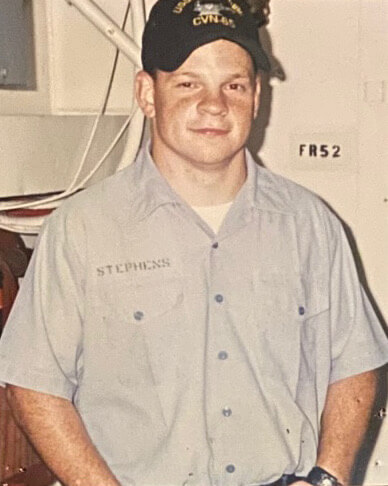
Chris, now 51, recalls the moment Mike enlisted in the Navy.
“He came home so excited. I gave him a hug and told him how proud I was,” he said. “Then he said, ‘Now let’s go get tattoos.’”
Though Mike was 18 months younger, he had a big personality from early on and a way of sticking with people, even after just one conversation.
“He was my bigger, younger brother,” Chris said. “He really set the pace and called the shots.”
Today, Chris carries Mike with him in more ways than one. He wears one of his brother’s well-worn Cincinnati Reds hats on nearly every run.
“They’re beat up beyond belief, but they’re priceless to me now,” he said. “It’s how I bring him with me.”
He also carries Mike’s dog tags and their father’s, clipped to his running vest for every mile.
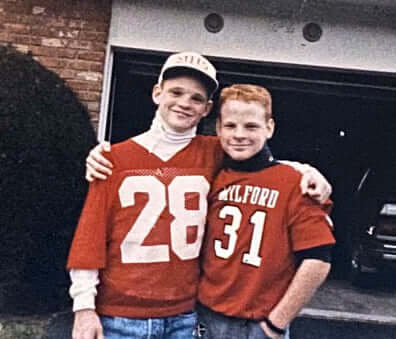
In the weeks following Mike’s death, Chris — already an experienced runner — turned to the trail to process his grief.
“Running became a way to keep him present,” he said, sharing that he began using the hashtag #MilesForMike, asking others to dedicate a workout to his brother. What started as a personal outlet quickly became a movement.
Photos of adventurers sporting a “Miles for Mike” bracelet have poured in from Morocco, Greenland and New Zealand. One runner wore it during the Tokyo and London marathons.
“It’s been incredible,” Chris said. “People who never met Mike are helping to carry his story forward.”
That story now includes Chris’s work with SSS, which was founded in 2010 by a group of Global War on Terror veterans who realized they were losing more friends to suicide than to war. SSS offers free, confidential and suicide-specific care to veterans and active-duty service members, regardless of branch or discharge status. Their wellness program, known as Roger, is built to respond quickly and tailor support to each individual. When someone reaches out in crisis, they hear from a team member within 15 minutes, with a full risk evaluation and a follow-up appointment typically scheduled within three days. The goal is to meet people where they are — and reach them before it’s too late.
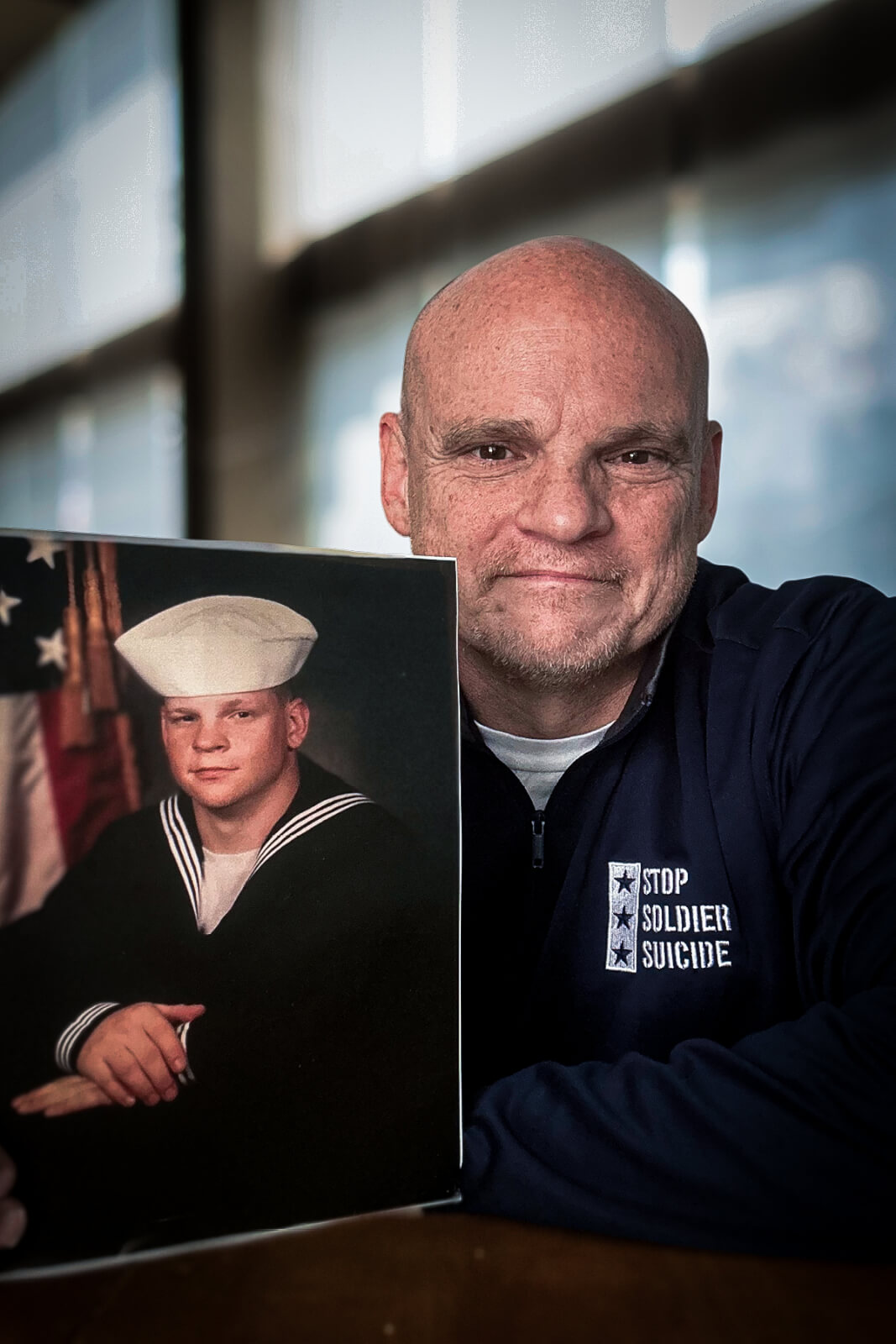
More than 6,000 veterans die by suicide each year — an alarming figure that continues to eclipse combat deaths in the post-9/11 era.
“If we can reach someone in crisis and help them pause, help them get through that moment,” Chris said, “we know there’s hope on the other side.”
Chris first found the organization through a fundraising challenge online.
“At first, I thought it was just a message, not a real group,” he said.
But he quickly connected with their mission and their team. Eventually, he joined them full-time as an in-house graphic designer.
“This work keeps Mike in the present for me,” he said. “It’s how I honor him and help others.”
As Chris prepares for the Marine Corps Marathon, he knows the finish line isn’t the point.
“I can’t bring Mike back,” he said. “But I can make sure his death wasn’t for nothing.”
How to help
To support Chris’s run, donate to his fundraising campaign or visit his Instagram page. To learn more or to get help for yourself or someone you know, visit Stop Soldier Suicide.
